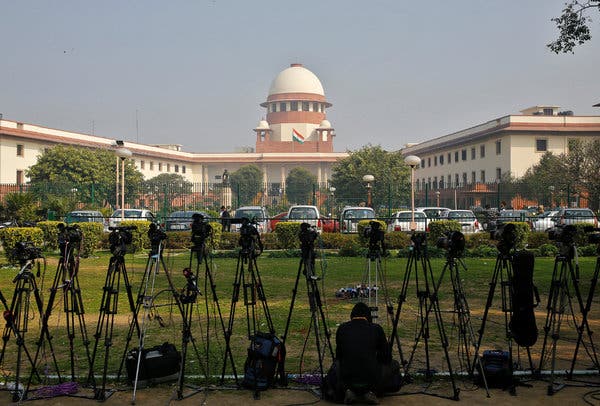Azad pledges to re-enact Roshni Scheme if voted to power
Former Chief Minister and head of the Democratic Progressive Azad Party (DPAP) Ghulam Nabi Azad today said if voted to power, he will re-implement the Roshni scheme.
Azad told reporters in Anantnag that the anti-encroachment drive to retrieve land given to people under the Act should be stopped. “If we form the Government, then we will implement the Roshni scheme once again.”
He said that if he is voted to power again in J-K, he will bring back the Roshni Act under which the ownership rights were given to the occupants.
Azad said that he passed the bill in the Assembly to benefit people of J-K. “I promise to you that if my party is elected to power, we will re-enact the Roshni Act in the Assembly,” he told people in his address.
“Today, notices are being served, the land is being retrieved. I had passed the bill of Roshni in the Assembly keeping in mind the poverty of the people here. Be it Hindus, Muslims, Kashmiris, Gujjar-Bakerwals, they possessed lands for over 100 years when there were only two persons in the house,” he said.
“Now, they have grown in numbers and cannot be accommodated on those lands. They cannot build houses or farm them. So, I made them owners of the Government land,” he said.
The former Chief Minister said that the law was passed in the Assembly by elected representatives, by an elected Government for people of this country only.
“This decision was taken to end the poverty of the people, so that they at least have a house or some land or for a small shop or a kitchen garden. Which storm was caused by it? We did not give land to some other country, but our own people. The land is for the people,” Azad added.
In the last few weeks, the administration retrieved hundreds of kanals of state land which was under the occupation of the people including several high-profile persons.
The Roshni Act was enacted in 2001 by the National Conference Government, and was repealed in November 2018 by then-Governor Satya Pal Malik.
The law was modified during Azad’s Chief Ministerial tenure from 2005-2008. In 2014, the Comptroller and Auditor General’s (CAG) report pointed out that many political persons from different parties had benefited under the Act.
Meanwhile, Azad said the Jammu and Kashmir Government should postpone the imposition of Property Tax for a few years till the economic situation in the Union Territory improves.
Azad said the economic situation in J-K over the last 35 years has become “bad” because of militancy.
“Our unemployment, inflation has increased manifold. Our tourism, handicraft, horticulture, has suffered a great deal and the people of J-K, including businessmen, transporters, shopkeepers, have suffered losses.
“There is no person from Lakhanpur to Tangdhar who has not suffered losses. So, in such a situation, when we are taking land from them, increasing electricity charges, we are not in a position to pay property tax,” he said.
The former J-K Chief Minister said in the last four years, since Article 370 was abrogated and J-K changed to a UT in 2019, and also due to the Covid outbreak, the backs of people have been broken.
“Ration supply has been decreased from 35 kgs to five kgs. So, the people have not got any respite. They do not have any income, so, how they will pay tax. Our people do not have any problem in paying tax, but first, there should be income. We know tax will benefit us, but, people should have that power to pay tax first, that money first.
“Right now, they do not have money to sustain themselves, where from will they pay tax? So, I will appeal the government to hold it for four-five years till our economic situation gets better,” he said.
“Let our tourism run smoothly for five-six years, our horticulture produce go to the market, our handicraft be exported, then perhaps we will be in a position to pay tax, Azad added.
He said the Government should have sympathy with the people and not form policies while sitting in offices, but by having discussions with the people.






